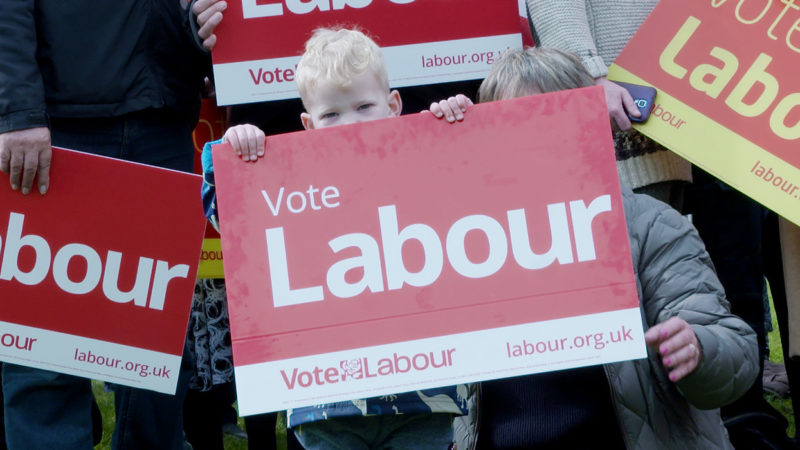
As recess draws to a close, politicos are flooding back to Westminster to get ready for what promises to be the biggest parliamentary showdown of our generation: the battle over no deal Brexit.
Boris Johnson’s decision yesterday to suspend parliament has sent shockwaves through the country. Under Johnson’s plans, the Queen’s Speech would set out his government’s legislative programme, including Brexit intentions on October 14th, with votes taking place from October 21st-22nd just after the final European Council meeting on October 17-18th. This leaves MPs with a tight timescale and limited opportunities to influence events. Suspending parliament in this most crucial time for the country cannot be regarded as the actions of a democrat.
The Conservative Party is gambling with the future of the country for the sake of their general election prospects. Proroguing parliament means it will be difficult for MPs to intervene in the Brexit process via legislative means as laid out in the Church House Declaration on Tuesday. Such plans could have included motions to take control of the order paper again to pass legislation which forces an extension of Article 50 through parliament, as we have seen before. Opposition leaders yesterday agreed to focus on such legislative strategies first, before tabling a vote of no confidence, which remained a last resort.
One does not need to be too much of a cynic to think that the explosive announcement could very much be a reaction to these plans. Because what Boris Johnson needs goes beyond the type of Brexit we might have – the Conservative Party knows they need to construct the narrative of betrayal to win the next general election, in which Boris Johnson can portray himself as the guardian of the will of the people against the traitors that obscured the result of the referendum.
Nothing less than a no deal Brexit is good enough. Some of the Conservative’s staunchest Brexit supporters made it clear that no renegotiation of the withdrawal agreement would satisfy them – be it the Irish Backstop or the so-called ‘divorce bill’ Theresa May had agreed, there was always another obstacle.
Johnson’s plans set a dangerous precedent for British democracy and a no-deal Brexit will have devastating impacts on many communities in this country. Among all of the upheaval, we should not forget the devastating toll this could have on European citizens in the UK.
After having served as scapegoats for Brexiteers in the referendum and with little notable solidarity from the political establishment ever since, it is understandable that panic swept through the EU citizens community when the Home Secretary Priti Patel announced plans to end free movement immediately after no deal Brexit.
Theresa May’s Government had previously agreed to a transition period until the end of 2020 to ensure EU citizens have time to apply for Settled Status. At present, just over one million Settled Status applications have been processed by the Government, leaving approximately two million citizens in legal limbo. According to EU citizens’ rights group The3Million, out of the one million processed applications, roughly a third of people have only received approval of a temporary status – so-called “pre-settled status.” It is clear that the UK is unable to grant all European citizens currently here a new immigration status within the next two months.
Without a transition period, European citizens will immediately be subject to the UK’s “hostile environment” policies which require them to prove their right to rent, work and access services in this country. For those whose application has not yet been processed, it will be extremely difficult to prove their legal status in the country, despite being residents.
In the context of prorogation, the faith of the Immigration and Social Security Co-Ordination (EU Withdrawal) Bill remains unclear. The bill is currently awaiting its third reading in the House of Commons and is unlikely to achieve royal assent by the time Parliament is suspended. In this case, there is the question whether the Bill will be carried over into the new session, of whether it will be thrown out and it’s back to the drawing board.
The reason the bill, which was first introduced in December last year to end free movement and make Europeans subject to new, not yet defined immigration rules. Its passage has been delayed significantly because the Government, with its waver-thing majority, was concerned to lose key votes in the House of Commons: campaigners had sought to pass amendments to secure EU citizens’ rights or widen the scope to include improvements for refugees.
With no alternative system in place, the bill likely to be abandoned and a No Deal Brexit on the horizon, it seems reasonable to assume that the Government will make changes to the immigration system for Europeans via secondary legislation. This is a process devoid of much parliamentary scrutiny that has regularly been used for controversial amendments to immigration law.
Labour members must stand in solidarity with European citizens who are currently battling against these anti-democratic and dangerous tactics to save their rights. We must then work together to advance a system that extends the privileges we currently enjoy to other migrant groups as well. Levelling down, particularly in this current climate, can never be an option.
The Labour Campaign for Free Movement has called an emergency demo outside the Home Office on September 4th and encourages all members and supports to attend in solidarity – the labour movement must stand united against this attack on democracy and migrants rights.
James Kelly is editing LabourList while Sienna Rodgers is away.




More from LabourList
‘Tackling poverty should be the legacy of Keir Starmer’s government’
‘The High Court judgment brings more uncertainty for the trans community’
‘There are good and bad businesses. Labour needs to be able to explain the difference’